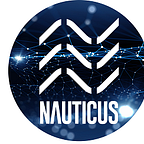Five Smart Uses for Blockchain Technology
The terms blockchain and Bitcoin seem to go together like peanut butter and jelly, but there is more to blockchain technology than just cryptocurrencies.
Blockchain technology is a secure way of recording transactions or contracts between two or more entities. Because of its decentralized nature, blockchain is practically impossible to crack, as every time there is a new transaction every ledger in the block chain is updated.
The potential uses of the technology are huge. Here are five examples of what blockchain technology can do beyond Bitcoin.
Storing health records
Using blockchain technology to store health records could be key in giving patients full control of their data — and their health. It will also make it easier for people to share their medical history with new practitioners, which will help minimize medical errors and potential lawsuits, as doctors will know which treatments, medications and tests each patient has had.
Recording this information on a national health service system could guarantee that each time a person goes to a hospital or needs and emergency procedure their data will be readily available, cutting waiting times and helping save thousands of dollars in repeat tests.
In Australia, My Health Record is an online platform aiming to do this. Although it’s not using blockchain technology yet, it’s the first approach towards creating public health records that give control of their data to its users.
Improving supply chains
Given that there are so many entities involved in a supply chain, some transactions may get lost or are hard to trace. Storing data in a secure, easily-accessible system can help organizations improve their processes and reduce transactions times. Using blockchain technology to store information also means there is less room for mistakes, and, if there is one, it would be easy to find, track and correct.
It’ll also help stamp out fakes and counterfeit goods — which in China accounts for as much as a quarter of the market in some goods.
Finish researchers asked 30 managers to discuss potential uses of blockchain technology to improve their supply changes; and they all agreed that ledgers and smart contract platforms were the two blockchain tools that would help to build a cost-effective and efficient supply chain for their businesses.
Smooth accounting systems
Keeping books in order and double-checking every entry to make sure all information recorded is accurate is time consuming — and expensive.
External audits can make the processes easier but it doesn’t necessarily mean theywould faster. That’s why Deloitte has suggested blockchain technology as the future of accounting systems.
In their paper ‘Blockchain Tehcnology: A game-changer in accounting’, Deloitte researchers suggest accounting should jump on the blockchain wagon to “simplifying the compliance with regulatory requirements to enhancing the prevalent double entry bookkeeping, anything is imaginable”.
Better voting systems
The secure and anonymous nature of blockchain will allow voters to cast their preferences knowing that they will be honoured. Votes recorded on the blockchain are impossible to falsify or modify, which will give voting systems worldwide much needed legitimacy.
The BitCoin Foundation launched in 2015 a blockchain-based voting system that was used for the very first time in Denmark during the internal election process of one of their political parties.
Other organizations, such as Melbourne-based Horizon State, are also working on e-democracy and blockchain-based voting platforms. Horizon State has developed a digital ballot box that has been used in the MiVotes website with good results. The company is the brainchild of entrepreneur Jamie Skella, who earlier this year signed an agreements with the United Nations’ Sustainable Development Goals.
Cost-effective energy supply
People who own solar panels can sell their energy surplus to neighbors who can’t install solar panels on their roofs. Not many people do it because the process takes time and payment usually arrives weeks later, after the middle-man took a cut— and here is where blockchain becomes useful. People willing to sell their energy surpluscan use blockchain technology, get rid of the middle-man and, at the same time, help to reduce energy costs and promote the use of renewable energy.
A Perth-based company, Power Ledger, has developed an easy-to-use platform that helps to connect solar panel owners with those who want to use renewable energy to power their homes. The platform allows peer-to-peer transactions, giving control back to the users and opening competition to ensure everyone pays what is fair.
The possibilities are endless.
This article brought to you by Nauticus Exchange, which has just reached its soft cap. The ICO is in its first week.
By Gabriella Munoz
